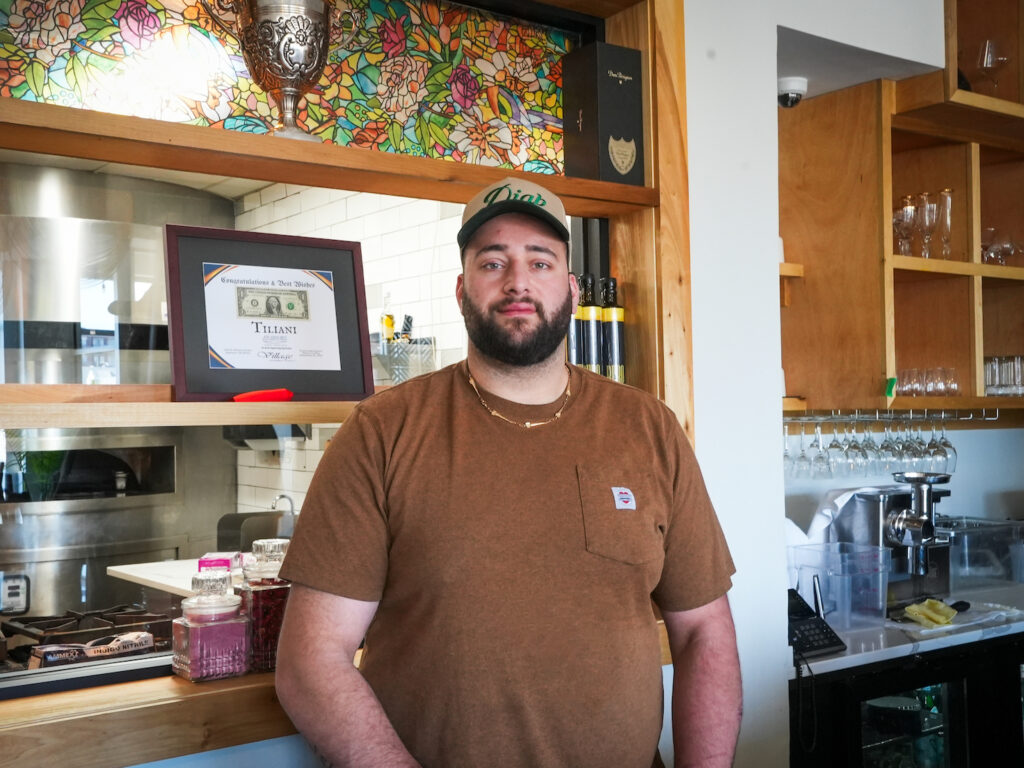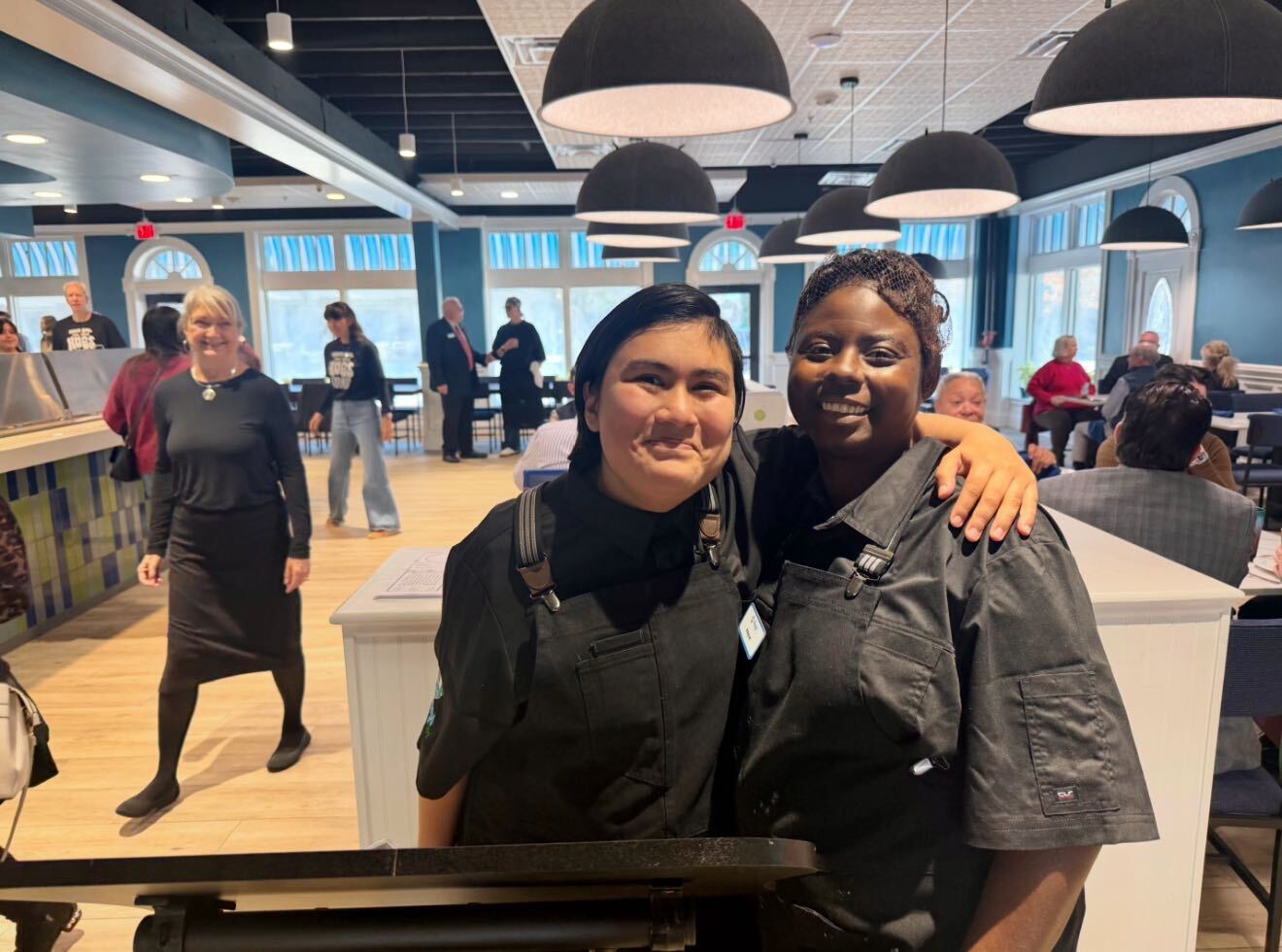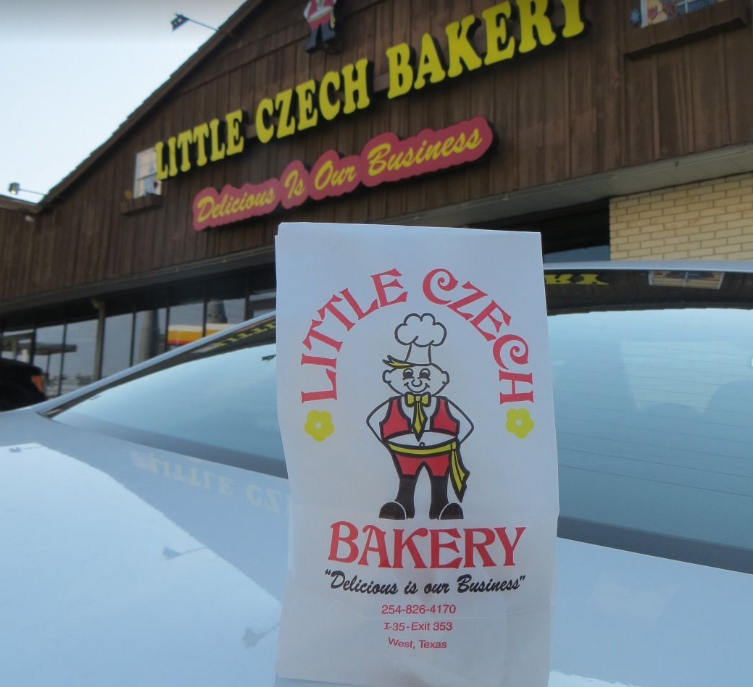(DETROIT) – Hisham Diab is the Executive Chef at Tiliani, a new restaurant in downtown Dearborn. Speaking to The Click, Chef Diab described his vision of bringing an unfamiliar cuisine, “coastal Italian,” to halal connoisseurs in Michigan. Tiliani opened its doors this fall at 1002 S. Military Street.
The Click: What’s coastal Italian cuisine? How is it different from other Italian food?
I believe Italian fine dining is seafood-heavy, and seafood is elegant. We approach it through ingredient sourcing. We get seafood from all over the world and use things found on the coast of Italy. But in any small village in Italy, once winter comes, they don’t have fresh fish available. So they’re not doing raw fish and crudo all year.
We’ve concluded that farm to table is the essence of Italian cuisine. In Rome, Milan and Venice they cook what’s local. In Modena, where balsamic and Parmesan are staples, the cuisine is different from anywhere else. So we wanted people to view Tiliani as Italian seafood sourcing, but also cooking with local produce.
What inspired the concept?
Our vision was to fill a void. There was nowhere in Dearborn doing halal Italian food. That was the problem to solve.
So the focus is on authentic Italian. But are there any local ingredients or flavors that get incorporated?
Other than citrus, which doesn’t grow in Michigan, everything we use is local. We use honey from a farmer in Detroit and Holland, Michigan. Our “garde manger” station is all local along with our kale and Romanesco cauliflower. Our Michigan farmers use Italian variety seeds and vegetables.
How do you adapt recipes to halal standards without losing authentic taste and appeal?
We don’t use wine in our food. We use “verjus” from early pressed grapes with their vines, which is sweet and tart. We also make our chicken stock in house. People go to [other restaurants] and get a Parmesan risotto, thinking it’s vegetarian, not realizing risotto is cooked with chicken stock.
On a scientific level, a cream sauce like penne a la vodka is so creamy because ethylene in the vodka allows the tomatoes and cream to emulsify. That is something you cannot mimic with anything else. But to say you can’t make good food without alcohol would not be true.
How has the local community responded?
Overall really good. We find ourselves educating people and having to earn their trust. People say, “Can we add shrimp to this salad?” and there’s nothing wrong with that. But it’s challenging, wanting to give people what they want but holding to the cuisine you’re trying to execute.
Are there specific coastal Italian ingredients that were hard to source?
Me and the chef de cuisine, Gillian Teall, went to [Culinary Institute of America] together. We’ve worked in New York and are used to having different ingredients available. Specialty things are a challenge to bring in from Baldor, one of the bigger purveyors of fine foods. But Mediterranean diets, whether Italian or Middle Eastern, are similar in ingredients. Our olive oil comes from my grandpa’s farm from Lebanon. While we’re cooking, we find ourselves saying, “This could easily be a Lebanese dish. What makes it Italian?”
Which signature dishes are you excited for customers to try?
Try the pizza. We do a sourdough pie with 20% whole wheat, so it’s not your typical white crust that’s airy and crispy. This has some character and nuttiness.
Otherwise, my personal favorite is the butterflied branzino with a fermented caper and honey emulsion. We use local garlic fermented in a vat of honey as a base. Then we use local oregano, capers and smear them on top of the fish, roasted in the wood oven. It crisps up and candies onto the fish.
Have you experienced any unexpected hurdles?
When we announced we were halal but serving liquor, there was some pushback. I thought that was going to be a big issue, but it wasn’t. As we’re waiting for our liquor license, sometimes people come in not knowing that we don’t have it yet, and when they find out they kindly say, “We’ll be back.” That’s happened more than I would have imagined. We’re looking forward to alleviating that. We have a great mocktail program for now.
Have there been any moments that have made you particularly proud?
There are a lot of people that can make money in restaurants. There are a lot of people that can serve really good food. But not a lot of people can offer a place where people enjoy coming to work. And that’s always been a goal of mine.
And you know, obviously hearing people like the food, the olive oil, getting compliments on that is always extra special knowing it comes from my grandpa’s farm.


